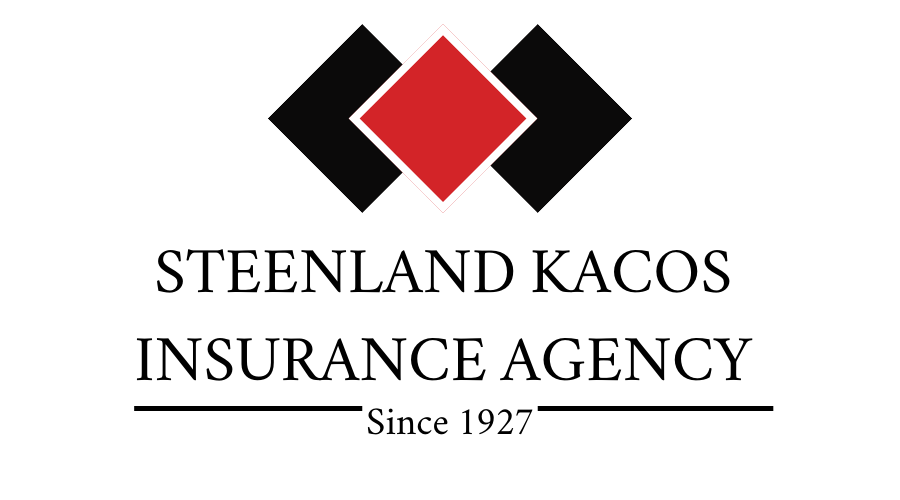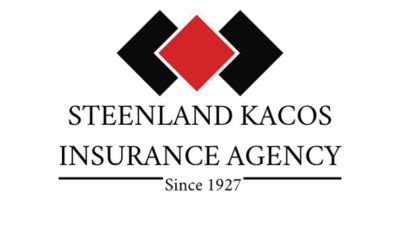Steenland Kacos Insurance Blog

Above and Beyond
Above and Beyond: How Choosing the Right Insurance Agency Can Protect You in Times of Crisis
In times of crisis, having the right insurance coverage can be very important. With the unexpected twists and turns life can throw at us, it's essential to protect ourselves and our assets. But how do you choose the right insurance agency to safeguard your future? In this article, we explore the importance of selecting the right insurance agency and how it can make all the difference.
When it comes to insurance, one size does not fit all. That's why it's crucial to find an agency that understands your unique needs and tailors their services to meet them. Whether you're looking for auto, home, life, or business insurance, having a knowledgeable and experienced agent by your side can provide you with the peace of mind you deserve.
Not all insurance agencies are created equal. Some may have limited coverage options or lack a personal touch, leaving you feeling like just another policy number. By choosing the right agency, you can have confidence that you'll be protected when you need it most.
Join us as we delve into the world of insurance agencies and uncover the secrets to selecting the perfect partner to safeguard you in times of crisis.
The Importance of Choosing the Right Insurance Agency
When it comes to protecting yourself and your assets, choosing the right insurance agency is of utmost importance. Insurance is a crucial aspect of financial planning, and selecting the wrong agency could leave you vulnerable in times of crisis. The right agency can provide you with the coverage you need and the peace of mind you deserve.
One of the key reasons why choosing the right insurance agency is crucial is because not all agencies offer the same range of coverage options. Depending on your specific needs, you may require different types of insurance, such as auto, home, life, or business insurance. By selecting an agency that specializes in the type of coverage you need, you can ensure that you have the right protection in place.
Furthermore, the right insurance agency will take the time to understand your unique circumstances and tailor their services to meet your needs. They will not treat you as just another policy number but will provide personalized attention and guidance. This level of service is essential in times of crisis when you may need to make a claim or navigate complex insurance processes.
In summary, choosing the right insurance agency is essential to ensure you have the coverage you need, personalized attention, and peace of mind in times of crisis.
Understanding the Different Types of Insurance Coverage
Before delving into the factors to consider when selecting an insurance agency, it's important to have a clear understanding of the different types of insurance coverage available. This knowledge will enable you to make informed decisions and choose an agency that can provide the specific coverage you require.
1. Auto Insurance: Auto insurance provides coverage in the event of accidents, theft, or damage to your vehicle. It can also provide liability coverage if you are responsible for causing injury or damage to others.
2. Home Insurance: Home insurance protects your residence and personal belongings against damage or loss due to various events, such as fire, theft, vandalism, or natural disasters.
3. Life Insurance: Life insurance provides financial protection for your loved ones in the event of your death. It can help cover funeral expenses, outstanding debts, and provide for your family's financial needs.
4. Business Insurance: Business insurance protects your business from various risks, including property damage, liability claims, and loss of income due to unforeseen circumstances.
Understanding these different types of insurance coverage will help you determine the specific needs you have and ensure that the insurance agency you choose can provide the necessary coverage.
Factors to Consider When Selecting an Insurance Agency
Now that we understand the importance of choosing the right insurance agency and the different types of insurance coverage available, let's explore the key factors to consider when selecting an insurance agency.
1. Assessing the Financial Stability of an Insurance Carrier
The financial stability of an insurance carrier is vital as it ensures that they have the resources to fulfill their obligations in the event of a claim. To assess the financial stability of a carrier, you can review their financial ratings from independent rating agencies, such as A.M. Best or Standard & Poor's. These ratings provide insights into the carrier's financial strength and ability to pay claims.
In addition to the ratings, you can also consider the carrier's history and reputation in the industry. A long-standing agency with a strong track record is more likely to have the financial stability necessary to protect you in times of crisis.
2. Evaluating the Reputation and Customer Service of an Insurance Carrier
The reputation and customer service of an insurance carrier are essential factors to consider when making your selection. Start by researching the agency online and reading reviews from current and past customers. This will give you insights into their reputation and the experiences of others who have worked with them.
Additionally, consider reaching out to the agency directly and asking for references. Speaking with existing clients can provide valuable insights into the level of customer service and satisfaction you can expect.
Remember, in times of crisis, you want an agency that will be responsive, empathetic, and efficient in handling your claims. Evaluating their reputation and customer service will help you determine if they meet these criteria.
3. The Role of an Insurance Agent in Helping You Navigate Through Crises
An insurance agent plays a crucial role in helping you navigate through crises. They are your trusted advisor and advocate, there to guide you through the insurance process and assist you in making informed decisions.
When selecting an insurance agency, consider the expertise and experience of their agents. Are they knowledgeable about the specific type of insurance coverage you need? Do they have a track record of helping clients through challenging situations?
A skilled and experienced insurance agent will be able to assess your unique needs, recommend the appropriate coverage, and provide valuable advice during times of crisis. They will also be proactive in reviewing and updating your policies as your circumstances change.
4. Examples of How the Right Insurance Agency Can Protect You in Times of Crisis
To further illustrate the importance of choosing the right insurance agency, let's explore a few examples of how they can protect you in times of crisis.
Imagine you have home insurance, and your house is damaged due to a severe storm. The right insurance carrier will promptly send an adjuster to assess the damage and initiate the claims process, ensuring that you receive the necessary funds to repair or rebuild your home.
Or consider a scenario where you have auto insurance, and you're involved in a car accident. The right insurance agent will guide you through the claims process, assist in coordinating repairs, and handle any liability claims from the other parties involved.
In these examples, the right insurance agency goes above and beyond to protect you in times of crisis by providing timely support, expertise, and financial assistance.
Evaluating the reputation and customer service of an insurance agency
When it comes to choosing an insurance agency, reputation and customer service should be at the top of your list. A reputable agency will have a track record of providing excellent service and delivering on their promises. Start by researching online reviews and ratings to get a sense of the agency's reputation. Look for testimonials from satisfied clients who have had positive experiences with the agency.
Customer service is another crucial aspect to consider. A good insurance agency will prioritize customer satisfaction and go above and beyond to meet their clients' needs. When evaluating an agency's customer service, pay attention to factors such as responsiveness, accessibility, and the willingness to assist with claims or policy inquiries. A reliable agency will have knowledgeable agents who can guide you through the insurance process and answer any questions you may have.
In addition to online research, consider reaching out to friends, family, or colleagues who have had experiences with insurance agencies. They can provide valuable insights and recommendations based on their personal experiences. Remember, the reputation and customer service of an insurance agency can make a significant difference in your overall experience and satisfaction.
The role of an insurance agent in helping you navigate through crises
An insurance agent plays a crucial role in helping you navigate through crises. They are your trusted advisor and advocate, guiding you through the complex world of insurance. In times of crisis, having an agent who understands your unique needs and can provide personalized advice is invaluable.
One of the primary responsibilities of an insurance agent is to assess your risk profile and recommend the appropriate coverage for your specific situation. They will take into account factors such as your assets, liabilities, and personal circumstances to tailor a policy that meets your needs. This personalized approach ensures that you are adequately protected in the event of a crisis.
During a crisis, an insurance agent can be your lifeline. They will assist you in filing claims, ensuring that you receive the compensation you are entitled to. Their expertise and knowledge of the insurance industry can help expedite the claims process and navigate any potential roadblocks. In times of crisis, having a reliable insurance agent by your side can provide peace of mind and alleviate some of the stress associated with dealing with unexpected events.
Furthermore, an insurance agent can also offer guidance and support when it comes to making important decisions regarding your insurance coverage. They can review your existing policies, identify any gaps in coverage, and make recommendations for adjustments or additional coverage. Their expertise allows you to make informed decisions and ensure that you are adequately protected.
Tips for reviewing insurance policies and making informed decisions
Reviewing insurance policies and making informed decisions can be a daunting task. However, with the right approach and some helpful tips, you can navigate through the process with confidence.
1. Understand your needs: Before reviewing your insurance policies, take the time to assess your needs and priorities. Consider factors such as your assets, liabilities, and personal circumstances. This will help you determine the type and amount of coverage you require.
2. Review coverage limits: Pay close attention to the coverage limits outlined in your policies. Ensure that they align with your needs and provide sufficient protection. It's essential to strike a balance between affordability and adequate coverage.
3. Evaluate deductibles: Deductibles are the amount you agree to pay out of pocket before your insurance coverage kicks in. Review the deductibles on your policies and consider whether they are manageable in the event of a claim. Adjusting deductibles can impact your premiums, so weigh the costs and benefits carefully.
4. Assess exclusions and limitations: Insurance policies often come with exclusions and limitations that specify what is not covered. Take the time to review these carefully to ensure that you are aware of any potential gaps in coverage. If necessary, discuss these exclusions and limitations with your insurance agent to explore alternative options.
5. Seek professional advice: If you're unsure about any aspect of your insurance policies, don't hesitate to seek professional advice. An experienced insurance agent can provide guidance and help you make informed decisions. They can also assist with policy reviews and recommend adjustments or additional coverage based on your needs.
By following these tips, you can review your insurance policies with confidence and make informed decisions that will protect you in times of crisis.
Conclusion: Investing in the right insurance agency for peace of mind and protection
Choosing the right insurance agency is a critical decision that can have a significant impact on your financial well-being and peace of mind. By evaluating an agency's reputation and customer service, you can ensure that you are partnering with a reliable and trustworthy organization. Additionally, understanding the role of an insurance agent in helping you navigate through crises highlights the importance of having a knowledgeable and experienced professional by your side.
When reviewing insurance policies, take the time to assess your needs, review coverage limits and deductibles, and evaluate any exclusions or limitations. Seeking professional advice when needed can help you make informed decisions and ensure that you are adequately protected.
Investing in the right insurance agency goes above and beyond just purchasing a policy. It provides you with the confidence and assurance that you will be protected when you need it most. So, take the time to choose wisely and find an insurance agency that will go above and beyond to safeguard your future.
FAQS
How does auto insurance work?
Auto insurance protects you financially by covering the costs of damage or injuries from a vehicle accident or theft. It is a contract between you and the insurance company, where you agree to pay the premium, and the insurance company agrees to pay your losses as defined in your policy.
What is umbrella insurance?
Umbrella insurance provides additional liability coverage above the limits of your homeowners, auto, and boat insurance policies. It kicks in when the liability on these other policies has been exhausted, offering an extra safety net of protection.
Why do I need liability insurance on my policy?
Liability insurance is critical because it covers legal costs and payouts for which you are found legally responsible. Without it, you could be faced with paying out of pocket for costly damages or medical bills.
How can I save on home insurance?
Maximizing savings on home insurance can be achieved by comparing policies, increasing deductibles, and ensuring your home has up-to-date safety features. Regular reviews of your policy can also uncover other potential savings.
What factors affect my auto insurance rates?
Several factors can affect your rates, including your age, driving history, and the type of vehicle you drive. Rates are also impacted by where you live, as different areas have varying risks of theft and accidents.


